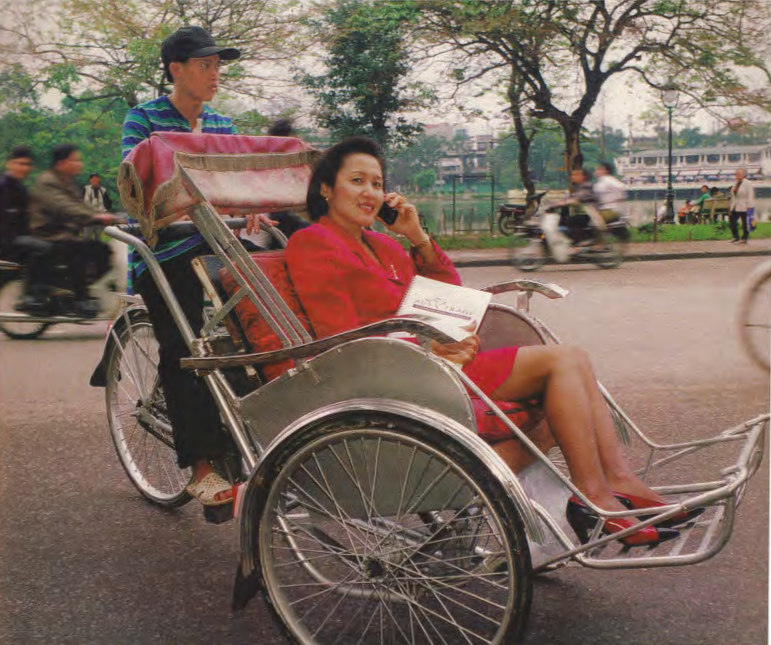Vi Peterson climbed to senior ranks in the male-dominated banking industry in the 1980s. Not satisfied to rest on her laurels, she has gone on to connect international businesses as a consultant, create her own philanthropic foundation and sit on a number of boards all over the world.
Vi Peterson (BCom, 1981) finds it hard to answer when people ask where she’s from.
“I was born in Saigon, but left Vietnam at just a few months old, in the late '50s. I grew up mainly in Vientiane Laos, in Hong Kong and in Bangkok.”
After the fall of South Vietnam in 1975, Peterson and her family had to decide where to go next. They settled on Australia, where her brother was already at boarding school.
She completed a BCom (Economics) at the University while living at International House, which she says was a highlight of her time studying in Melbourne.
After graduation, she joined the ANZ as part of its graduate management program and stayed on for nearly 15 years.
She held a number of senior positions in international, corporate and business banking and was sent back to Vietnam to launch the bank’s operations in the country.
She says being a woman in banking in the 80s wasn’t exactly easy.
“Thankfully the industry has changed a lot since, but back then, I had to overcome inherent prejudices, biases and preconceptions about women in mainstream banking. It was about trying to prove that women can be just as good bankers as men. And I think I've done that.”
Following her success in banking, Peterson went on to become a trade diplomat. Now she and her husband run a consulting firm providing strategic advice and business solutions to multinational corporations operating in Asia.

Saving lives through philanthropy
In 1997, Peterson and her husband were working in Vietnam – she was the Senior Trade Commissioner for Australia; he was the first US Ambassador after the war.
Through his work on Vietnam’s public health system, Vi’s husband became aware of the devastating impact of accidental injuries, particularly in children. So together, they spearheaded the “Safe Vietnam” Campaign, a highly successful diplomatic initiative that made child injuries a key public health issue.
Child injuries weren’t confined to Vietnam – they were a global epidemic, disproportionately affecting children in developing nations. Vi and her husband followed up the Vietnamese campaign by starting a new foundation in 2002, The Alliance for Safe Children (TASC). At the time, no public health institution was focusing on this issue in the developing world, so TASC undertook the mission of dealing with child injury prevention in developing countries.
Through a mix of research, education and intervention programs - including flying in the Royal Lifesaving Society of Australia to teach children survival swimming - TASC has saved hundreds of thousands of children.
Ten years later, the UNICEF, the World Health Organisation and other philanthropic organisations have started to invest large amounts of money into the cause, which is exactly what Peterson wanted to happen.
“When we first established our foundation, our main objective was to take an orphan issue that nobody was focusing on and then raise the awareness, raise support for it, raise funding for it, and then basically put ourselves out of business. We did that and I’m very proud.”
Philanthropy has been fundamental to Peterson’s approach to life and business.

“To me, everyone should engage in some form of philanthropic pursuit. It's good for the soul. Business comes from the head. Philanthropy comes from the heart. It's about giving something back in any way, any capacity, that you can. It's about making a contribution, helping people without expecting anything in return.”
Life lessons
Peterson says her multicultural background has proved invaluable to her career.
“I think it has really helped in terms of empathising with and understanding people from different cultures and business practices. When doing international business, it's very important. It requires a delicate balance to come up with business solutions that are a win-win, not a win-lose. You need to make an effort to understand where all parties are coming from.”
She says people who want to create impact in their careers and lives should get out of their comfort zone.
“Reach out and be open-minded. Mix in different circles. Travel. Travel is a whole education in itself. Engage in different types of businesses to get exposure. Don't be afraid to take risks. Take advantage of every opportunity that comes across your door.”
Listen to the Women are the Business podcast for more insights on women's working lives - linking cutting edge research and real life experience to explain the hurdles they face. Available on Spotify and Apple Podcasts now.